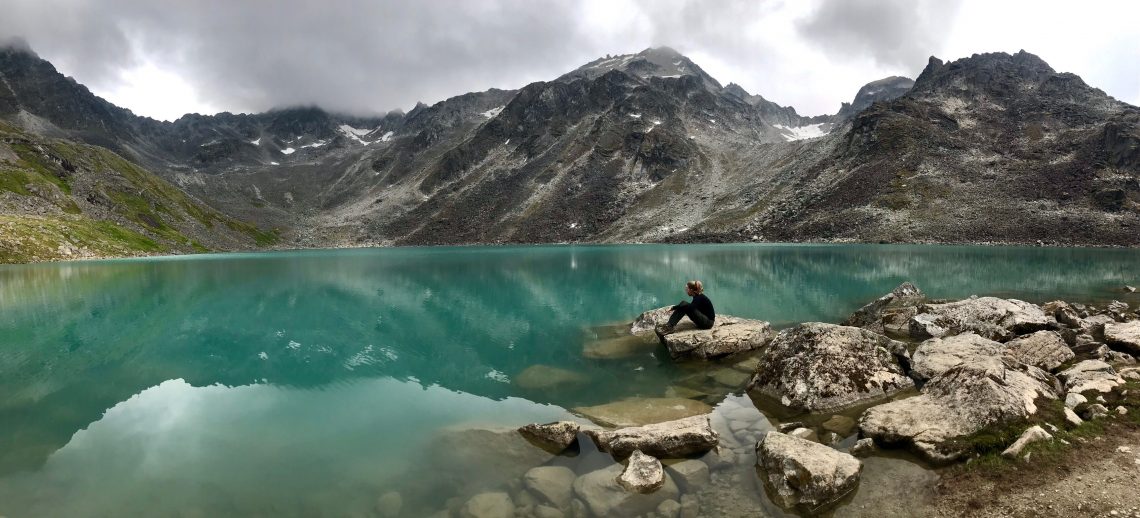
Focusing on the Facts During her internship in Alaska with the Office of the Attorney General, 2L Brooke Wilson learned how the right facts can make or break a case.
Brooke Wilson is a second-year law student from Briarcliff Manor, New York. She graduated in 2016 from Cornell University with a degree in Chemistry & Chemical Biology. At W&L Law, she is Vice President of Education of the Environmental Law Society, a staff writer for the Journal of Civil Rights and Social Justice, and a member of the Women in Law Society.
What did you do for work this summer?
This summer I interned with the Alaska Department of Law, Office of the Attorney General in their Torts and Workers’ Compensation section.
How did you find/get this position?
In the fall semester of my 1L year, I attended the Equal Justice Works conference in D.C. I spoke with an attorney who worked and was representing the AK Department of Law at the conference. We had a really interesting conversation about the tension between environmental and natural resource interests in Alaska, and it solidified my decision to apply for the internship.
Describe your work experience.
There was never a dull day in the Torts and Workers’ Compensation section. The cases were always interesting, and I had the opportunity to work with several attorneys in the section on projects involving their cases. I researched and wrote memos, read through records to create case timelines to assist in answering complaints, visited a state correctional facility for a site visit, and drafted a motion to dismiss. I was encouraged to seek out and go to anything that I was interested in, so I attended depositions, sat in on trials, and watched oral arguments before the Ninth Circuit Court of Appeals and the Alaska Supreme Court. In addition, the Department of Law organized several events for all of the interns including a mock trial before a federal judge at the end of the summer.
What were some skills you developed this summer?
My legal writing and research definitely improved this summer as well as my ability to evaluate the importance of different facts. A large part of tort cases is sifting through hundreds of pages of records and discovery documents to create a timeline of what occurred. As I would develop these timelines, I became very familiar with a case. However, the real skill, besides knowing your case thoroughly, is being able to discern the role of different facts. Part of what I learned this summer was how to identify what facts are material versus facts that should be investigated more thoroughly versus facts that may provide useful background knowledge but will not make or break your case. Learning how to evaluate and discuss facts also strengthened my writing.
What classes or experiences were useful in preparing you for the summer work?
I relied most heavily on what I learned in legal writing and torts. I found that the assignments from legal writing paralleled many of the writing assignments I had this summer, and I was able to build off of the feedback I had received in class. Torts was very useful, because Alaska is a relatively young state and the case law is still developing. Having a broader, general knowledge about torts and how issues are handled in different states was extremely helpful.
What surprised you about the work you did this summer?
One thing that surprised me was how collegial the legal community is in Alaska. Within the Department of Law, I found that the attorneys I worked with were willing to answer questions, to take the time to learn about my career interests and discuss their experiences, and to provide feedback. What was even more unique was that this sentiment extended beyond the Department of Law to other attorneys and even judges that I had met through events. Because of this environment, I felt that the attorneys I worked with showed genuine interest in receiving my input, and I was able to take on substantive projects as a first-year law student.
What was your favorite aspect of this summer work experience?
The intern mock trial was a memorable experience. We were split into teams of four, were provided with a problem, and had a mock trial before a federal judge at the end of the week. I really enjoyed working closely with my team of fellow interns, who were from law schools across the country, as well as our team “coaches” who were attorneys from all different sections within the Department of Law. Another aspect that made my summer experience great was being in Alaska and having the chance to explore some of its breathtaking landscapes with the other interns.
Has this experience helped you figure out post graduate plans, and if so, how?
This experience confirmed my interest in litigation. Although I am still interested in exploring transactional work, I am pursuing internships for next summer that will allow me to gain more experience in litigation.
How do you think this experience will shape the rest of your time at W&L Law?
This summer I realized how much more I can learn through practical experience. My plan is to take advantage of the wide-ranging practicums and clinics available to second and third year law students at W&L Law.
